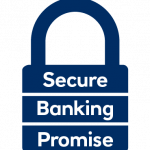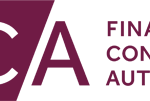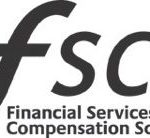A Complete Guide to Banking Safety
What Protections Are Automatically in Place for my Money?
-
£85,000 worth of protection per UK regulated financial institution.
All the current accounts, savings accounts and ISAs held in regulated banks, building societies and credit unions in the UK are covered by the Financial Services Compensation Scheme (FSCS). This allows you to get back £85,000 per person, per financial institution, usually within 7 working days.
-
A temporary cover for up to £1 million for ‘life events’.
Savings of up to £1 million may be protected for a six month period if your provider goes bust after your savings have temporarily been increased by a ‘life event’, such as selling your home, being made redundant, after an insurance or compensation payout, or if you inherit a sum of money. You can find out more about what exactly constitutes a ‘life event’ on the FSCS website. Should you meet the criteria, you will need to be able to prove where the money came from in the event of a claim, and could have to wait up to three months for any cash over £85,000.
Are my savings with a ‘UK regulated institution?
What level of protection is there for a joint account?
Are multiple accounts all covered?
The protection is £85,000 per individual per UK regulated financial institution. It is important to realise that, should you have multiple accounts with the same institution, for example, an individual savings account as well as a joint account, you will still only have £85,000 worth of protection. No matter how many different accounts you hold with one institution, any amount within them over £85,000 will not usually be protected.
It is important to note that a financial institution often encompasses more than one bank, though it is complicated. The definition of ‘institution’ depends on a bank’s licence and details of conglomerates. Halifax and Bank of Scotland, for example, are part of the same financial institution and so all the accounts you hold in either of these banks will only be covered up to £85,000. Other sister banks, RBS and NatWest, on the other hand, are separate institutions and so you will be covered for up to £85,000 in each as their limits are separate.
What does the FSCS Cover?
The scheme only applies to institutions regulated by the Financial Conduct Authority (FCA).The main categories of protected savings are:
- Bank and building society accounts
- Any cash saved with a SIPP (Self invested personal pension)
- Any cash ISA (including Help to Buy ISAs)
What Can I do To Save More Safely?
There are certain things you can do to bank more safely and help to mitigate the risk that could come with a financial crash. First and foremost:
Spread out Your Savings
- For amounts over £85,000, the golden rule is not to place more than that amount with any one financial institution. If you are within this limit at each institution then you will be covered. Spread your savings between a number of different accounts or financial products.
Plump for National Savings and Investment
NS&I is fully backed by the government, so is as close to 100% safe as you can get. Technically, it does not have any more protection than any other financial institution, but since it is government owned, it would only go bust if the UK government does – and if the country goes bust we’ll all have much more serious problems!
Repay Your Debts
Would my money be safer under the mattress?
While it can sometimes be tempting to simply avoid banks altogether and stow your savings under your mattress, it is important to note that this will leave you vulnerable to theft, and also to losing the money in a fire or other accident. Most home insurance policies will only cover up to £750 worth of cash in your property.
What can I do to mitigate the risk to my savings from online crime?
- Keep an eye on your accounts and monitor them regularly.
- Be wary of clicking through emails. Head straight to your bank’s official site. (and check for encryption – the little lock icon).
- Change your passwords regularly and make sure extra security steps are in place.
- Never give out information about your financial dealings on the phone or by email.
- Access your accounts from a secure location.
- Always log out after banking online.
- Protect your computer from viruses and malware and keep your system up to date and scanned for bugs.
- Be careful not to reveal too many private details on social media which could make it easier for criminals to guess your passwords etc…
Be savvy and aware of scams, and make sure you yourself are not the ‘weak link’ that puts your hard earned savings in jeopardy.
Can I get my money back if there is an unauthorised withdrawal of my savings?
Money can only be taken from your account if you have authorised the withdrawal. If you notice that money has gone from your account that you did not authorise, you should contact your bank or building society immediately. In most circumstances, the bank must refund you for an unauthorised payment.
In most cases, the bank must issue a refund without undue delay unless it has reasonable grounds for suspecting fraud. You may have to fill out a form and answer some questions. When the refund is made, it must also include refund of any charges and interest you have paid due to the unauthorised transaction.
- the bank can prove you authorised the transaction (use of your password, card or PIN is not enough to conclusively prove this).
- The bank can prove that you acted fraudulently, or failed to protect the details of your card, password or PIN with ‘gross negligence’.
- The unauthorised transaction took place more than 13 months before you reported it.
A bank may also be able to claim money from an account without your authorisation to pay a debt. If the bank has the right to claim money from a savings account to pay a debt, this should be clearly explained in your account terms and conditions.
Money Pug can help you find the right savings account, ISA or other account or financial product for your needs. But it is up to you to be aware of your financial rights, and banking safety, to keep your money as safe as possible in any eventuality.
Compare through MoneyPug today! and SAVE Money











